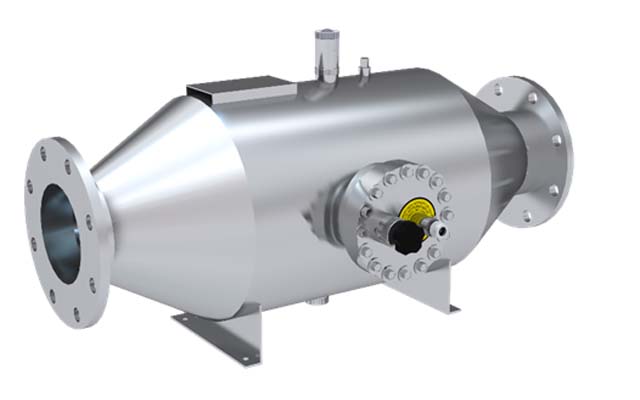Tapping into its 35-year experience of treating municipal, residential, and industrial waters shoreside, France-headquartered Bio-UV Group has introduced a range of solutions for treating more water streams onboard vessels.
With its sights firmly on the cruise and ferry markets, the publicly listed company has introduced a suite of marine UV reactors for the disinfection and dechloramination of swimming pools, hot tubs, spas, and potable waters. The technology is similar to that deployed in its established Bio-Sea ballast water treatment range.
Simon Marshall, Bio-UV Group Deputy MD said: “Warm pools, spas and hot tubs are particularly attractive to waterborne pathogens like the legionella bacteria, and the cryptosporidium parasite, both of which can be very harmful to human health, but the often-overlooked problem is chloramine, a by-product of the chlorine typically used to disinfect the water,”
When chlorine is applied to water contaminated with microorganisms, bacteria, dead skin, sweat, urine, and suncream, then trihalomethane (chloroform) and chloramine by-products are produced, both of which are proven to have a direct impact on human health. Exposure not only irritates the skin and eyes but can cause respiratory problems such as asthma, bronchitis and rhinitis. Cryptosporidium, meanwhile, is a chlorine-resistant parasite that causes a diarrheal disease called cryptosporidiosis, which is spread through drinking and recreational waters.
Marshall said: “This is a major concern for cruise lines. As the parasite is transmitted by ingesting water or food contaminated with the faeces of an infected animal or person, an infected person bathing in a pool can release millions of these nasty parasites, exposing more passengers to illness.”
With the rise in the number of people choosing a cruise following the Covid pandemic, Marshall said that it is important ship operators do all they can to ensure passengers remain in good health during and following their vacation.
Dimensioned to treat all ship’s recreational water streams, Bio-UV Group’s NSF 50 cryptosporidium-certified UV CF-TS reactors disinfect the water using medium-pressure UV-C lights.
Bio-UV Group Solutions Director Maxime Dedeurwaerder said: “The reactors are specifically designed to disinfect recreational fresh and seawater, killing a minimum of 99.99% of all microorganisms, a kill rate far beyond the efficacy of chlorine. The technology also reduces chlorine levels by 75%, resulting in a better bathing experience, reduces water renewal times, reduces water heating and dehumidification costs, and limits corrosion.”
For a passenger ship’s potable water supply, Bio-UV Group has marinised its land-based UV technology to ensure that all microorganisms in drinking, cooking, and bathing water are killed with the same level of efficiency. Regulatory compliant, these dosimeter-based biodevices are certified by an independent laboratory and conform to Onorm standards.
Dedeurwaerder added: “Cruise ships are considered high-risk environments because of the uncertainty of water quality, the inconsistency of water treatment, and the complex storage and distribution systems onboard. By integrating the Bio-UV DW water treatment system with proper water management practices, cruise ships can significantly reduce the risk of waterborne disease and bacterial outbreaks while ensuring passenger safety. Access to clean drinking, cooking and recreational waters is vital for passengers and crews onboard and it must be free of any impurities before consumption. While there are stringent regulations in place to ensure that a ship’s fresh and sea water supplies are of the highest standard the most cost-effective way of achieving and maintaining water quality is with UV technology,” .
Unlike chemical disinfection, UV treatment is said to work instantly as water passes through the UV chamber, providing real-time treatment for a range of pathogens without leaving harmful residues. UV treatment ensures that even hot water systems are properly disinfected.
Image: Bio-UV has marinised its UV CF TS reactor to treat recreational waters onboard ship (source: Bio-UV Group)



